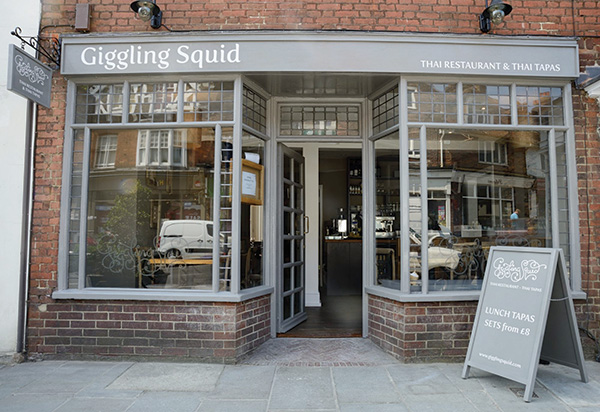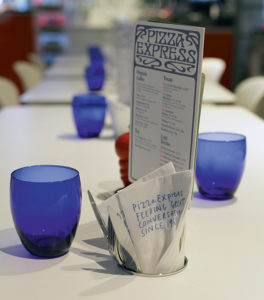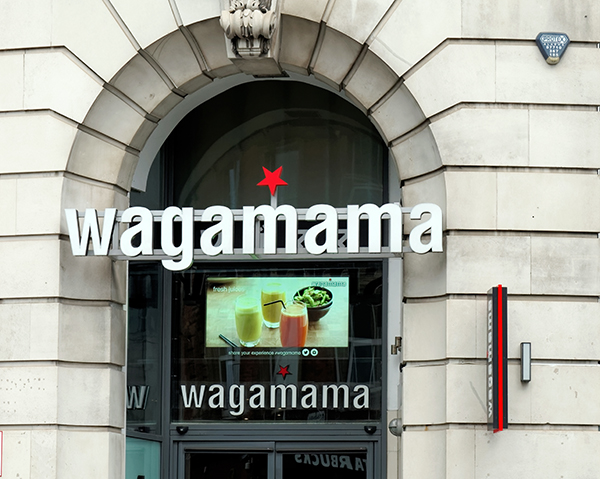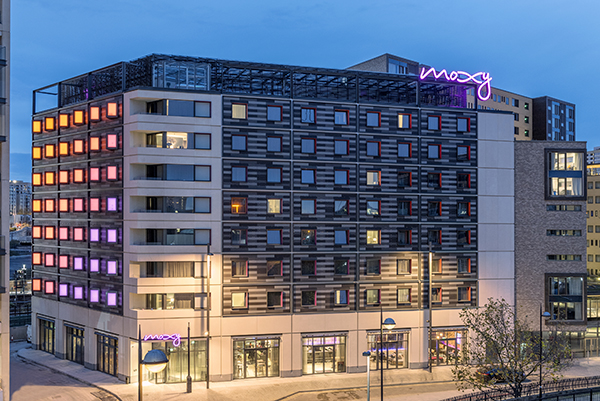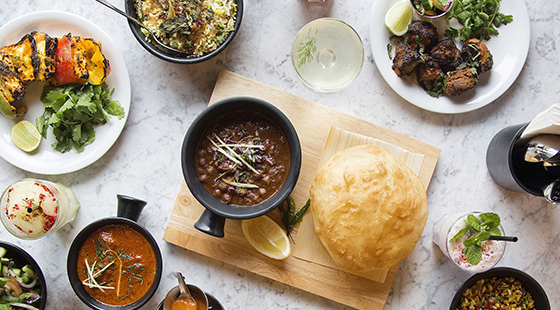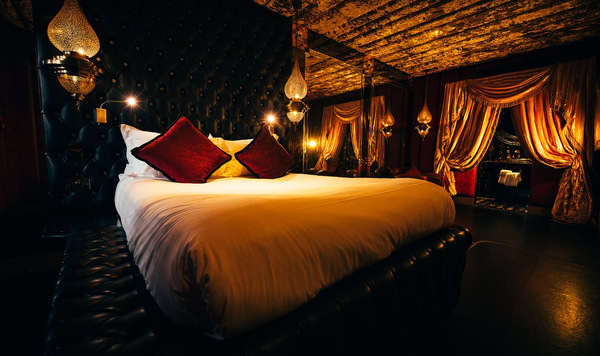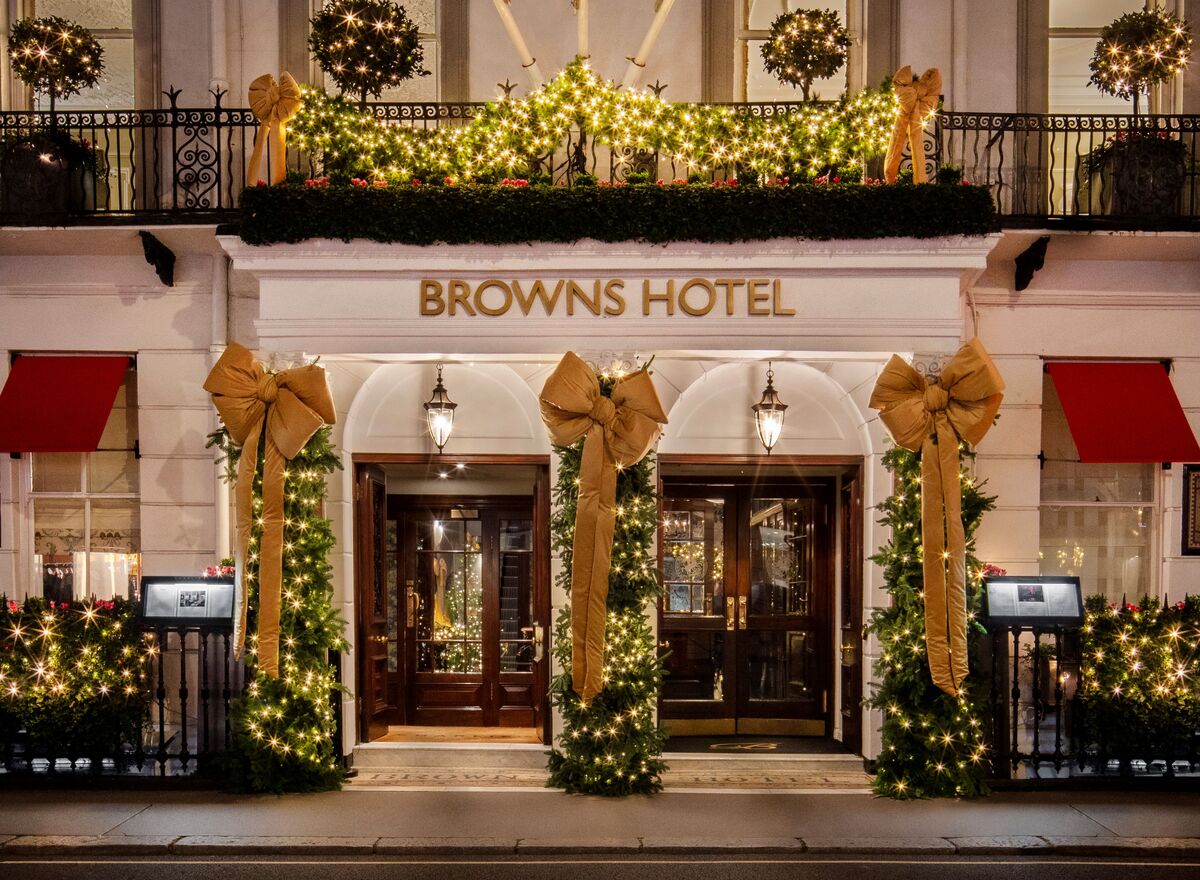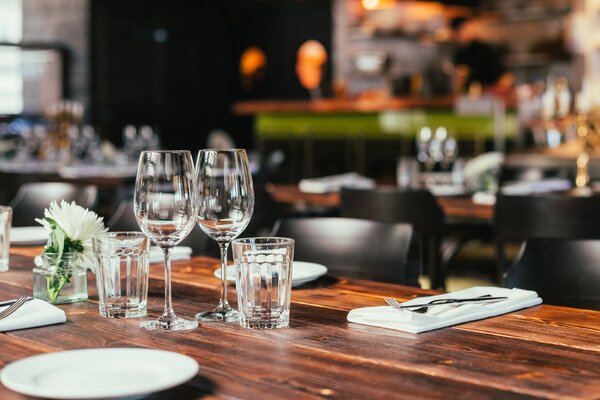Name game: what should you call your business?
When it comes to naming your business, do you tell a story, such as Fifteen, do you pick a moniker that efficiently describes what you do, such as PizzaExpress, or do you just go completely off the wall, such as Giggling Squid? Neil Gerrard looks at how to pick a brand
Hotel magnate Sol Kerzner's initial response to the idea of calling his new luxury hotel brand One&Only wasn't encouraging.
"When I first presented the idea to him, he said: ‘You have got to be f***ing joking'," recalls Piers Schmidt, then the strategic marketing director for Kerzner International's One&Only Resorts, who has since gone on to found consultancy Luxury Branding.
Thanks to a delay in the launch process and the influence of Sol Kerzner's late son Butch, who saw that the name would appeal to a younger audience, it eventually sank in and is now used on exclusive resorts around the world.
Schmidt thinks he knows why Kerzner Senior had reservations. "It was very arrogant and completely different to the generic platitude names that were the resort industry's selling point at the time. But they got it and invested into it and now I don't think anyone thinks twice about its oddness," he says.
Itâs not an easy task and itâs getting harder, contends Schmidt â" and he has 25 yearsâ experience of the art, including advising on the creation of the Dorchester Collection brand, as well as assisting in extending the Armani brand into hospitality with Armani Hotels & Resorts.
âIt is probably now more difficult than ever, not least in the hospitality industry, which seem to spawn new diffusion brands every month,â he says. âItâs also become something of a laymanâs game â" everyone thinks they can do it, but it is part art and part science. You need to have commercial insight and artistic flair to get it right.â
However, for restaurant consultant Des McDonald, the ingredients for a name that works are simple enough in theory: âThe best names need to be able to help describe what is on offer, be easy to understand, and fit their location and local audience. They should help ground and place the brand,â he says.
âA good name is perhaps even more significant in this industry because it is shorthand for so many elements of what you are offering your customer,â adds Simon Wright, managing director of branding and design agency Greenwich Design.
Crucially, unlike advertising, PR and social media influencers, a name is free, Schmidt points out. âIt is bestowed by you upon your brand, so I always recommend to our clients that it should work hard for you,â he says.
Make it memorable

As far as restaurants Ââ" whose main marketing is generally word of mouth â" are concerned, the key is to have a name that is memorable, he contends. And what makes a name memorable? âThatâs the million-pound question,â he says. âIt is extremely difficult to identify a mechanical way of coming up with the answer. Who would have thought that a name like Wagamama would have become kitchen currency, for example? Itâs bizarre. No one knew what it stood for or could even spell it. But it works extremely well and it is completely unique.â
The name of his own business came about after a day fishing on the beach with his children. âThe youngest was wriggling about. I was holding him and the eldest said he was like a wriggling fish. A couple of bottles of wine later, that became âGiggling Squidâ,â he recalls.
Clearly, it works â" Giggling Squid now has 29 restaurants with more on the way. If there isnât a formula, then there are some guidelines to be followed, according to Laurillard. A distinctive, simple name will help when it comes to searchability online, and he recommends avoiding anything too derivative.
âIf you have a generic name, like Lemongrass, for example, it is going to be quite difficult to have a great online presence,â he says. âAs a local proposition, everyone will know what it is, but if you are trying to use social media, you need to have something that is ownable and recognisable.â
The name should be married to a clear and concise offer so that customers understand what the concept is and how it will be delivered. âThese are the ones that are going to cut through and give people something that they can hold onto,â he adds.
McDonald is an advocate of simplicity. âIâve developed or suggested some really simple brand names over many years in this business. Some restaurants that spring to mind would be 34 in Mayfair, which is a solid, grand Mayfair building perfect for a clubby steakhouse. It felt very east-side New York. We also developed a coffee shop brand for the Principal Edinburgh George Street hotel called Burr&Co [derived from the burr coffee bean grinder]. It worked really well and the brand is rolling out through the group.â
Wright advises undertaking extensive research including looking at brands you want to be like and the local competition, and making sure that the website domain name you want is available. âItâs only by looking at what else is out there that you can start to identify how to differentiate yourself,â he says.
Itâs also worth considering what not to do. Schmidt cautions against abstract names â" such as Orange, or Apple â" unless you have an enormous marketing budget to create awareness of what the brand stands for. Made up or âcoinedâ names â" like Accenture or Diageo â" are also likely to feel cold and contrived in the hospitality market, where itâs important to come across as human and welcoming.
Stand out from the crowd
Schmidt urges hospitality operators not to be sheep and adopt a name that mirrors others in the market. He points out that recently the lexicon of libraries and books have become popular among lifestyle and hotel brands, creating a phenomenon that he calls âchapter and verseâ.
He explains: âYou have got Edition, which is Marriottâs joint venture with Ian Schrager, you have got Hyattâs Unbound Collection, you have got Verse Hotels, Chapter Hotels and Journal Hotels. Whether it is unwitting or not, I think big groups and consultants often get drawn towards these same territories and they get completely mined out.â
Itâs a similar story with the alphabet, ever since Barry Sternlicht founded W Hotels for Starwood Hotels & Resorts, now swallowed up by the Marriott portfolio, sparking a trend for hotels named after a single letter. Luxury Brands recently undertook some research and found that there are only two letters â" E and F â" that have not been used for a hotel brand.
And donât get Schmidt started on mixing upper and lower case letters in names or skipping vowels. âI hate these artificial affectations,â he says. âPeople think they can take a word like âpilgrimâ and make it proprietary by dicking around with the spelling. There are one or two that work but most donât. You have to think about searchability. Creatives like fantasy, but then the real world comes and knocks on your door.â
Jason Catifeoglou, one of the founders of the 73-bedroom Pilgrm (sic) hotel, located in a Grade II-listed Victorian building in Paddington, London, says that choosing a name is one of the hardest things to do.
âThe Pilgrm name came from the idea of presenting a hotel which represented a well-travelled journey, one taken by its founders and contributors,â he explained. âThe actual misspelling was a fortunate error by one of the founders, who accidently missed the second i and then ended up sticking with it. There were no clever or big agencies involved in creating the name.â He adds: âWeâve never had an issue with online searches, but thatâs down to a solid digital marketing campaign.â
Keep it fresh
Wright thinks puns, which seem to be a trend, need to be treated extremely carefully. âThese can be great as they raise a smile, but you should be careful not to create your business around a joke thatâs going to wear thin. You need to make sure itâs still fit for purpose when you have five branches,â he says.
Finally, itâs a good idea to think about how a name will sound, not just on its own, but when it is used in conversation, recommends Neil Svenson, chief executive of branding firm Rufus Leonard, which has worked with the likes of PizzaExpress.
âMany of the names we all know and love that just feel right are accompanied by a compelling story about the brandâs origins. For example, Fifteen was founded in 2002 when the restaurant took on 15 underprivileged youngsters who Jamie Oliver trained as chefs,â he says.
âWhen you are identifying a name, you have to consider how it will be used, how it sounds when it will be spoken and how you can build on it. A name is rarely experienced in isolation.â
So what names do our experts love? Laurillard has already revealed he is a fan of Wagamama, but also admires Côte (âit doesnât make you laugh but it is distinctive and simple and if you search for it on Google it is uniqueâ), and PizzaExpress (âit is fairly bland, but it does what it says on the tin and they have managed to imbue the brand with a sense of their food valuesâ).
When it comes to hotels, Schmidt reserves praise for Moxy Hotels (âIt feels like Marriottâs little sister. There is a bit of âminxâ in there, it is short, and has a nice sound to it. The âxâ also gives it a bit of distinctiveness and the âmâ joins it to Marriottâ), Proper Hotels (âI like the idea of hotels being done properly when there is so much flim-flam in the hotel industry todayâ).
McDonaldâs love of simplicity means he is drawn to the classic, stylish Nobu brand, and he also likes the whacky uniqueness of Sexy Fish. He isnât put off by a good pun, praising London cocktail bar brand Tequila Mockingbird.
Schmidt doesnât hold back when it comes to some of the names he doesnât like either. Itâs all a matter of personal opinion, of course, but he expresses little affection for Hyatt Centric. âItâs just dreadful,â he opines. âIt groans under its own weight. You can see what it is trying to say: âYou, the guest, are at the centre of everything we do.â But in a way it is the brief for a name rather than the name itself.â
He also sees Canopy by Hilton as too literal. âOf course, the hotel is a canopy, but you donât need to say it. Good names indicate the idea rather than illustrate it.â And his thoughts on Best Western Internationalâs urban boutique brand Vib (pronounced âvibeâ)? âSupposedly itâs short for vibrant, but it takes me to the sexual instrumentâ¦â
What Sol Kerzner would make of that one, we will probably never know.
The fame name game
If you are working with a chef who has made a name for themselves, itâs tempting to put it above the door, even if they donât own the business outright. But two recent high-profile examples of chefs walking away from projects illustrate why itâs best to approach such deals with caution.
Firstly, John Burton-Race departed his eponymous restaurant with rooms at the former Grosvenor hotel in Torquay in August. The rebranding of the hotel took place only eight month earlier, just prior to Richardson Hotel Group calling in administrators in January. Burton-Race insisted he left on good terms before the hotel was swiftly renamed once again, this time to the more generic Abbey Sands.
Meanwhile, also in August, James Cochran hit out at his former employer after the owners of James Cochran EC3 said they would be leasing his name along with the restaurantâs signature recipes. Despite his departure and a stated intention to rename it 19 Bevis Marks, the restaurant, operated by Rayuela Ltd, still bears Cochranâs name.
Sajjad Khan, a consultant at Pitmans Law, says it is essential that both parties are clear at the outset as to what the terms of any such agreement are, including any termination provisions and the consequences of a termination.
âIn general, it would be unusual for a celebrity chef to assign his or her trademark in his or her name to the business, but it may depend upon the bargaining power of the parties,â he remarks.
âHowever, the business can set out clearly the circumstances that may require it to cease use of the name. The business can determine the term of any licence, any trademark or name and any renewal of the term of the agreement,â he adds.
Whatever the nature of the dispute, the business should also consider the PR and marketing implications of continuing to use the name, even if it is the legal owner, he advises.
On a related note, Khan also points out that it is vital for any business to conduct the relevant trademark searches on any name or branding it is considering to avoid the potential for costly legal disputes further down the line**.**



